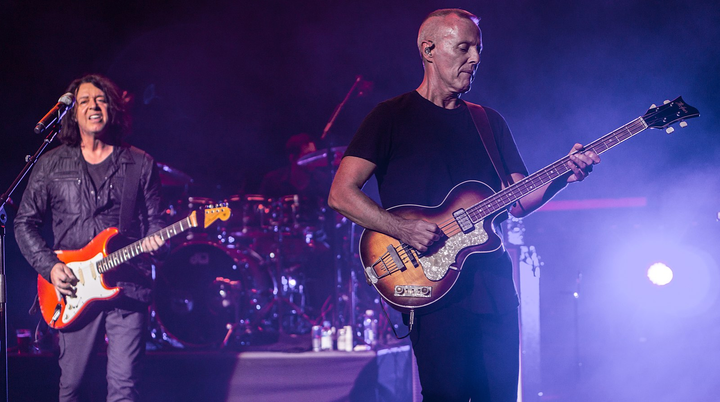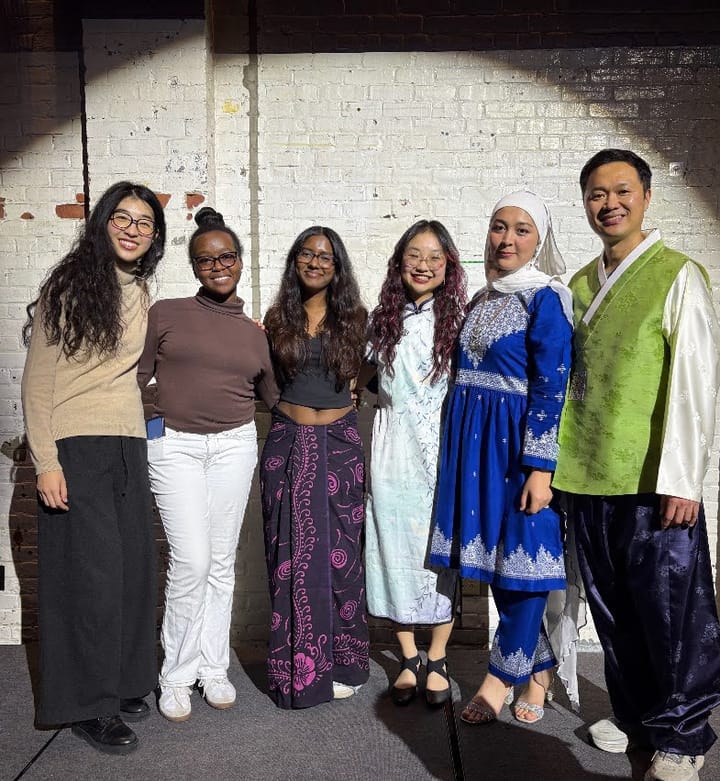“Gossip Girl’s” New Progressive Veneer Falls Flat
Staff writer Yasmin Hamilton ‘24 reviews the “Gossip Girl” reboot. Despite claiming to feature more progressive and inclusive themes, the reboot ends up pairing many of the original show's problems with terrible acting and dialogue.
As the youngest of three girls, I consumed a lot of media that I probably shouldn’t have when I was younger. One of the shows I was able to sneak in was “Gossip Girl,” a teen soap opera about the wealthy teens of the Upper East Side of New York City. The show premiered a year before the Great Recession, providing viewers with a voyeuristic escape into the excesses of the elite while the country struggled. While I was too young to really know what was going on, my sisters’ enthusiasm stuck and created a kind of fabricated nostalgia within me when I binge-watched it years later on Netflix, along with many of my peers in my generation. But my nostalgia was now colored by a critical and ironic lens my sisters did not have when they first watched the show, something I am, again, not alone in. There are countless articles that revisit the show and unpack just how politically incorrect, racist, classist, and sexist the show could be, even when it was most popular.
When I heard about the new “Gossip Girl” on HBO Max, I was already less excited compared to some people. It’s hard to be thrilled about the wave of reboots that result from corporations exploiting the financial security of nostalgia and eschewing the inherent risks of creativity in the process. Despite these sentiments, I still (hypocritically) started watching the reboot with the same attitude that I approached the old “Gossip Girl” with. Part of me hoped that it would surprise me, but it proved to be harder to find any merit in the reboot than in the original.
While watching the first episode of the reboot, I became immediately aware how awful the dialogue and acting are. Characters speak their lines in dead-pan voices and interact with each other as if they’re strangers, and not life-long friends and romantic partners with years of emotional weight. They make pseudo-intellectual movie references that don’t have any depth. At one point Aki (Evan Mock) seemingly randomly calls his group of wealthy friends “the Seven Samurai” and then emotionlessly exclaims, “Hey, one day you’ll get Kurosawa!” when they’re understandably dismissive of the nickname. Their frequent fights and snarky comments are equally unexpressive, making it hard to gauge the severity of their emotions.
If you can get past the stumbling, shallow dialogue and the terrible acting, the show’s failure to meet its advertised goals is what makes it truly insufferable. Leading up to its premiere, the show’s creators seemed to emphasize the reboot’s progressive attitude in comparison to the old show. It seemed like the show would try to sell itself to new generations by being socially conscious and “enlightened.” In many superficial ways, the show succeeds in being more progressive than the original. The main cast features Black and queer characters, and their identities are not as tokenized as they were in the original show. There are also countless references to political and social movements.
However, the show fails to back the representation in the cast with any substance in the plot, where it matters the most. The problems of the original persist within the reboot, played out by a more diverse, but just as privileged set of characters. There are frequent disclaimers and signposts meant to indicate that the show is progressive and politically correct, but they usually preface plot points and lines that are still sexist and status-obsessed, ultimately focused on ensuring that there are still winners and losers. There’s one scene where Luna (Zión Moreno) tells Zoya (Whitney Peak) that she wants to give her a makeover, but of course, one that will absolutely not be for the approval of a cisgender, straight man (Obie, played by Eli Brown).
Ironically, she proceeds to give her a makeover to ensure that Zoya is worthy enough in the eyes of the public to be the socialite companion to said cisgender straight man. Ultimately, Zoya only gives up this polished version of herself because Obie decides he prefers the ‘real’ her. The show ultimately prioritizes the straight, cisgender, white man’s preferences, even while claiming the opposite.
The middle-aged showrunners also still romanticize teens having graphic sex and engaging in questionable and sometimes exploitative relationships. There’s yet another student-teacher relationship that has graphic sex on screen, and Max’s bisexuality only seems to exist to facilitate relationship drama and threesomes. The creators’ fixation on the sex lives of teens is paired with the strange decision to choose the similarly-aged teachers to be the anonymous Gossip Girl narrator this time around. They spy on their students and claim that this creepy surveillance is necessary to their good behavior in school.
It is possible though, that the reboot contains a hidden critique on the hypocrisy and naivety that younger generations share with their on-screen representations. Maybe the creators intended for their characters to be shallow and inauthentic, because that’s what they think viewers will relate to. Maybe they know that regardless of whether or not viewers see past the thin veneer of political correctness, it won’t matter, because they’ll keep watching anyway. That possibility would be equal parts optimistic and gruesome for the show’s worldview.
If you’re looking for a show to mindlessly consume, the original “Gossip Girl” is probably still more fun to watch than the reboot because of its authenticity — even despite its many issues. You could also check out Netflix’s “Elite,” which has as many flaws as the reboot, but pairs them with good acting, doesn’t promise to be perfect and takes itself way less seriously. If you’re looking for more teen dramas that actually deliver on the PC-front, HBO’s other teen show “Euphoria” does a good job of representing a diverse set of identities, is more relatable to the average viewer, and features compelling characters and plotlines.
This reboot proves that representation does not mean anything if there is no intent behind it beyond marketing. It’s clear that the new “Gossip Girl” tries to market to both older and newer generations by including both references to the old show and representation of identities and political correctness. But because of the lack of sincerity in the second appeal, it looks like the reboot is just a feeble attempt to profit from millennial nostalgia while also attempting (and failing) to fit into the changed landscape of contemporary media.





Comments ()